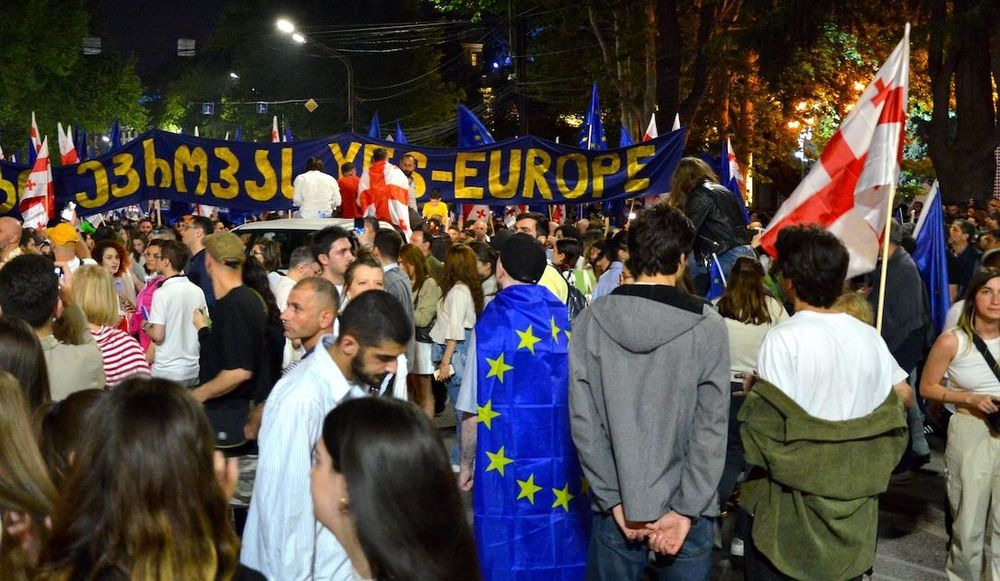Russia-aligned operation targeted US users on X to discredit protests in Georgia
Researchers have identified a network of malicious accounts targeting American users on social media platform X to discredit protests in Georgia sparked by an unpopular Russian-style law that threatens the independence of local media.
This campaign was likely orchestrated by the Russia-linked malign network Doppelgänger, known for spreading disinformation in the U.S. and Europe, according to an analysis by the Atlantic Council’s Digital Forensic Research Lab (DFRLab) released earlier this week.
The DFRLab identified nearly 40 suspicious X accounts that posted Georgia-linked replies to different U.S. accounts on the platform, including those of well-known figures, like U.S. Rep. Matt Gaetz, various news platforms like Democracy Now, and a sports meme account.
Doppelgänger’s accounts were likely automated — commonly referred to as bots. They were created in May 2024, have no posts or followers, and use publicly available stock images, predominantly featuring animals and cars, as their avatars.
The content spread by these bots focused on discrediting anti-government protests in Georgia and spreading conspiracy theories suggesting that the U.S. was behind them. They also engaged with anti-Ukraine content and criticisms of U.S. President Joe Biden.
“While the identified accounts were typically removed from the platform within a few days, they appear to represent only a part of the network,” DFRLab said.
Earlier this spring, Georgians began protesting against the ruling Georgian Dream Party, which passed a foreign agents law targeting nongovernmental organizations, media and individuals who associate with international organizations. Many within and outside of Georgia fear the legislation could be used to silence independent media and civil society, similar to laws in Russia.
Although X is not widely popular in Georgia, the international community, including the U.S., has used the platform to express support for Georgia’s protests, the researchers noted. American and European officials and organizations have also used X to communicate their support for the protests and to share criticisms of the law and the Dream Party.
The U.S. condemns the Georgian ruling party passing an anti-democratic foreign influence bill into law and moving Georgia away from the aspirations of its people. pic.twitter.com/l7SHBxK75O
— Department of State (@StateDept) May 28, 2024
This is just the latest Doppelgänger campaign uncovered recently. Earlier in May, the social media giant Meta identified new attempts by this threat actor to influence audiences in the West and undermine support for Ukraine. Meta called these efforts “crude and largely ineffective.”
Despite the dubious results of its activity, Doppelgänger is considered the “largest” and “most aggressively persistent” malign network sponsored by Russia, according to Meta.
It is mostly known for creating bogus versions of reputable news websites to feign credibility in disseminating anti-Ukraine narratives, but its operations are constantly evolving, according to DFRLab.
Daryna Antoniuk
is a reporter for Recorded Future News based in Ukraine. She writes about cybersecurity startups, cyberattacks in Eastern Europe and the state of the cyberwar between Ukraine and Russia. She previously was a tech reporter for Forbes Ukraine. Her work has also been published at Sifted, The Kyiv Independent and The Kyiv Post.



